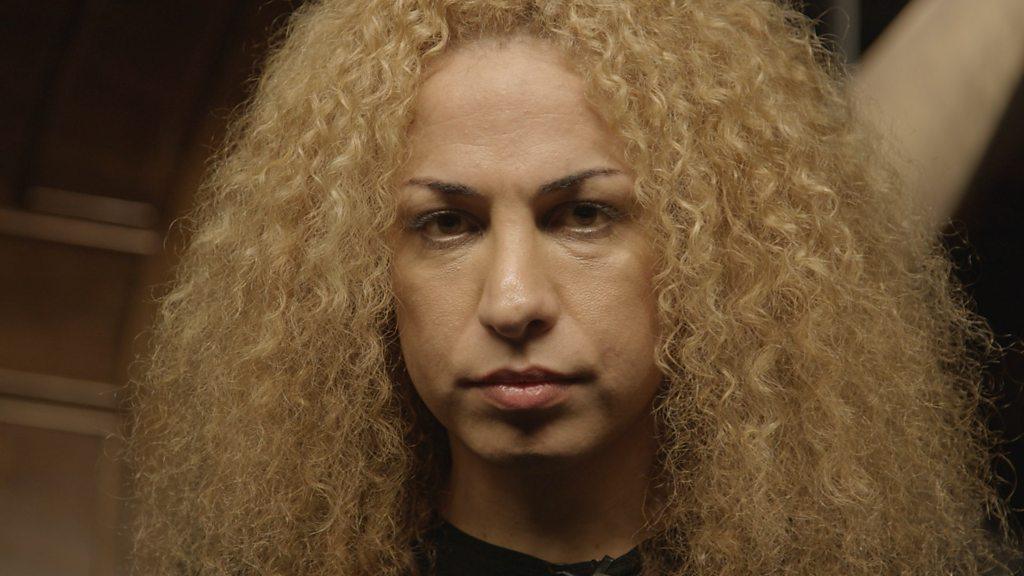Domestic violence: US condemns Turkey for quitting treaty
- Published
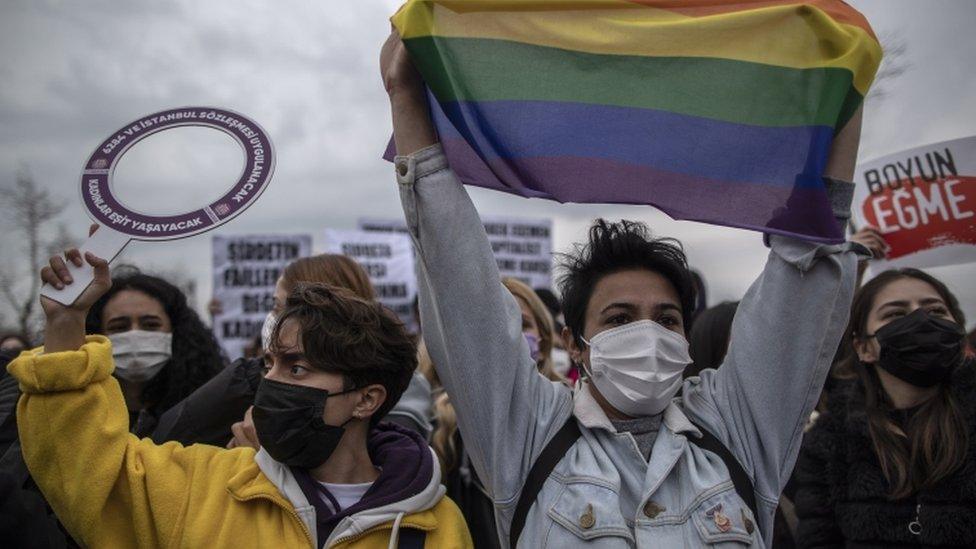
Protests against the treaty withdrawal erupted across Turkey over the weekend
US President Joe Biden has condemned Turkey for withdrawing from an international accord designed to protect women from violence.
He said the move was "disappointing" and a "disheartening step backward" for efforts to end attacks on women.
But Turkey said the Istanbul Convention - which seeks to prevent, prosecute and eliminate domestic violence - was incompatible with its family values.
It had been "hijacked" by people trying to "normalise homosexuality", it said.
President Recep Tayyip Erdogan's government unilaterally quit the convention on Saturday, nearly 10 years after it became the first signatory to the landmark agreement.
The move sparked large protests led by women in the country.
Women's rights activists say the Istanbul Convention, external was crucial to combating domestic violence in Turkey.
The treaty, signed by 45 countries and the European Union, requires governments to adopt legislation prosecuting domestic violence and similar abuse. Aside from Turkey, the treaty had only been ratified by 34 countries.
What did Biden say?
On Sunday, he issued a statement to express his disappointment, joining a growing chorus of criticism.
"Around the world, we are seeing increases in the number of domestic violence incidents, including reports of rising femicide in Turkey," Mr Biden said.
"Countries should be working to strengthen and renew their commitments to ending violence against women, not rejecting international treaties designed to protect women and hold abusers accountable."
He added: "We all must do more to create societies where women are able to go about their lives free from violence."
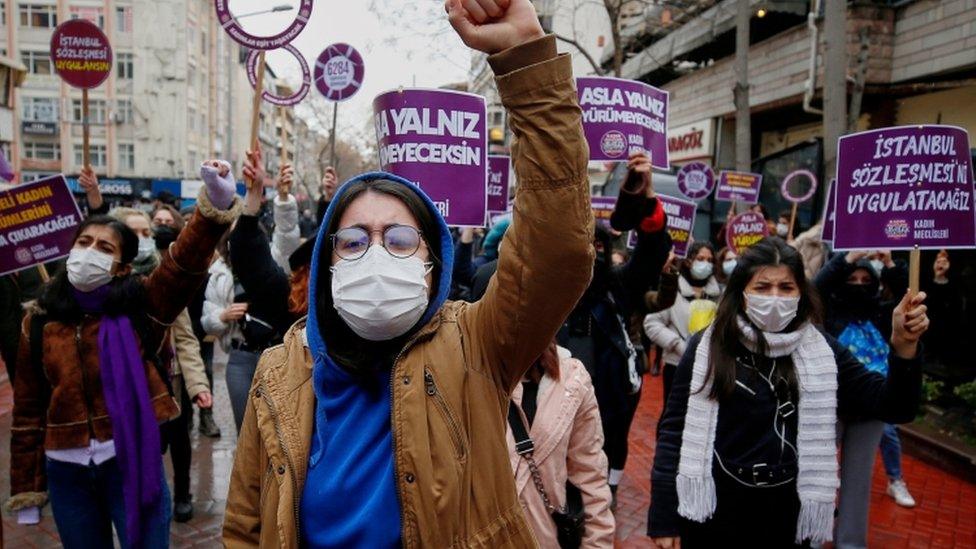
The Istanbul Convention is world's first binding treaty to prevent domestic violence
The EU's foreign policy chief, Josep Borrell, said Turkey was sending "a dangerous message across the world" about the rights of women.
"We therefore cannot but urge Turkey to reverse its decision," Mr Borrell said.
In a tweet, European Commission President Ursula von der Leyen wrote: "Women deserve a strong legal framework to protect them."
Allow X content?
This article contains content provided by X. We ask for your permission before anything is loaded, as they may be using cookies and other technologies. You may want to read X’s cookie policy, external and privacy policy, external before accepting. To view this content choose ‘accept and continue’.

Their comments come a day after those of Marija Pejcinovic Buric, the head of Europe's top human rights body, the Council of Europe.
"This move is a huge setback to these efforts and all the more deplorable because it compromises the protection of women in Turkey, across Europe and beyond," Secretary-General Buric said.
What is Turkey's reason for leaving the treaty?
In a statement, external, the president's office explained its decision.
"The Istanbul Convention, originally intended to promote women's rights, was hijacked by a group of people attempting to normalise homosexuality - which is incompatible with Turkey's social and family values. Hence the decision to withdraw," the statement said, without giving further details.
It said Turkey was not the only country that had "serious concerns" about the Istanbul Convention.
Despite quitting the convention, the Turkish government "will not give up on its fight against domestic violence", the statement added.
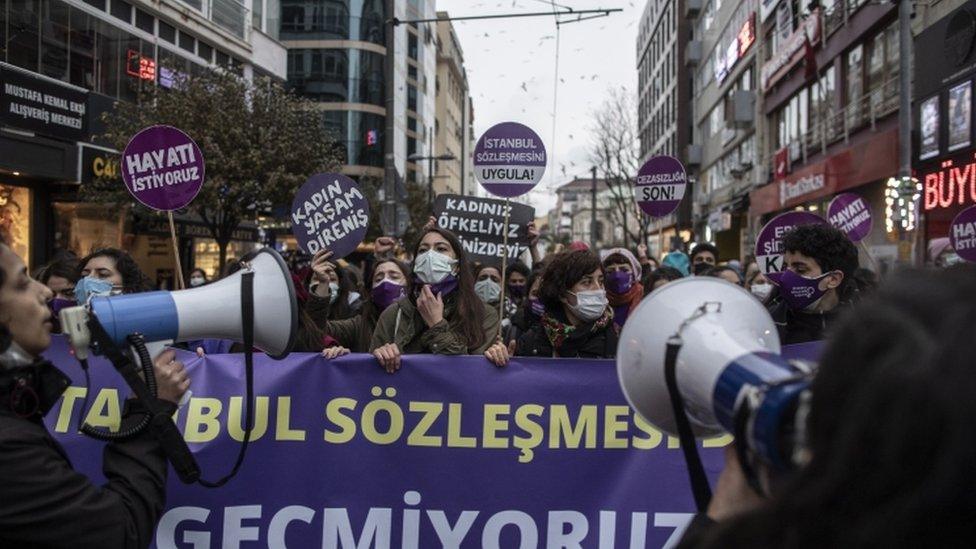
The withdrawal is being seen as a victory for conservatives in Turkey
The issue, it said, would remain "on top of the government's agenda".
President Erdogan, who has dominated the country for nearly two decades, has been accused of eroding Turkey's secular character and promoting social conservatism.
Conservative critics of the Istanbul Convention said it was being used to advocate for greater acceptance of the LGBT community in Turkey.
The Human Rights Watch group says, external "anti-LGBT policy has become a polarising tool for the Turkish government in its crackdown on opposition voices".
How big a problem is violence against women in Turkey?
At least 300 women were murdered in the country last year, according to Turkey's We Will Stop Femicide Platform.
However, the group said, the number could be even greater, as dozens more women have been found dead in suspicious circumstances.
The rape and murder of 23-year-old student Sule Cet in the capital Ankara in May 2018 struck a particular chord, prompting demonstrations and widespread media coverage.
Turkey's hidden domestic abuse: A survivor's story
Related topics
- Published5 December 2019
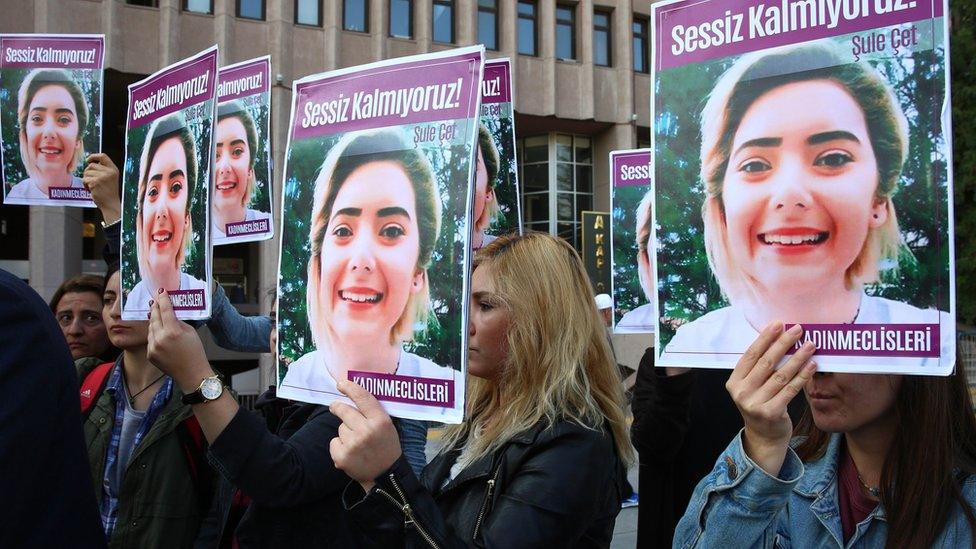
- Published29 November 2016
